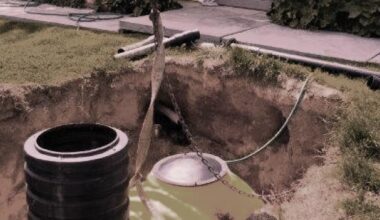Buying a home is rarely a quick process. But when you finally step foot inside your dream home, all of your hard work, sweat, and tears seem to pay off. When your offer is accepted, you’re undoubtedly eager to move in and begin your new life, but one critical step remains the home appraisal. Real estate appraisals are important for many reasons, but the most important one is that they give both the buyer and the mortgage lender confidence in the money they are investing. But what exactly goes into a home appraisal refinance, and how long should it take?
In this post, we’ll take at how long it takes to get a home appraisal for a refinance, as well as the basics of appraisals and the issues that may affect your ability to keep moving forward.
What Is A Home Appraisal?
A home appraisal procedure evaluates a home’s fair market value, ensuring that the buyer is paying a reasonable price for the property. In contrast to an in-depth home inspection, where the inspector looks for any little flaws, a real estate appraiser is more concerned with the overall worth and fundamental condition of the home.
The appraiser will consider the overall condition of the home, as well as any upgrades or improvements made to the property, as well as market research into comparable homes in the area, to calculate a final appraised value, which is then compiled into an appraisal report and returned to your mortgage lender.
How Long Does A Home Appraisal Take
A home appraisal is normally performed after a seller accepts your purchase offer, and the process might take several weeks from start to finish. “Due to the strong demand for appraisers, appraisals can take one to three weeks to complete,” Dicks explains.
Several additional factors can influence how long a home appraisal will take for a refinance, such as the home’s physical location; rural homes that are off the main path, for example, may take longer to get to than those that are more centrally located.
What Happens During a Home Appraisal?
The home appraisal process includes a visit to the home as well as research to prepare and finalize what is known as a “Uniform Residential Appraisal Report.” More information about each phase is included below:
#1. Scheduling a home appraisal
Once the lender orders the appraisal, it normally takes one to two days to get on the appraiser’s calendar; however, if there is a high demand in your region, it may take longer to complete the home appraisal.
#2. Inspection and walk-through of the house
The home appraiser will then visit the property to assess the exterior and inside, which might take anywhere from 30 minutes to a few hours depending on the size and structure of the home.
#3. Data analysis and review
Before compiling the report, the appraiser will conduct market research to discover comparable homes that have recently sold in the area, generally known as comps, to assist in determining the home’s current market worth.
#4. Report preparation
The appraiser will assemble this information into a report, which will contain photographs from the exterior and interior of the home, based on their findings and current sales data in the region.
What Do Home Appraisers Look for?
During the appraisal, the appraiser evaluates the home’s condition as well as other comparable homes in the neighborhood. Here’s a closer look at what they look for:
#1. Internal factors
Internal criteria considered by the appraiser include the size of the home, or square footage, as well as the layout, number of rooms, usefulness, and structural elements.
#2. External factors
These include the general structural quality of the home, the foundation’s condition, the home’s location, and any other evident defects.
#3. Comparable sales
The appraiser will visit the home to conduct an exterior and interior analysis, but before issuing an appraisal report, they will conduct research to discover previously sold comparable properties in the neighborhood, which will help provide direction on how much the home is worth.
How Long Does a Home Appraisal Take for Refinance
Home appraisal for refinance can take anywhere from a few days to weeks depending on the complexity of the property, the appraiser’s schedule, and other varying factors. This process is similar when getting a refinance appraisal, although homeowners who are refinancing their property are allowed to attend the appraisal, while home buyers are not.
Why Do Lenders Need a Home Appraisal for a Refinance?
Your lender wants to ensure that the value of your home is sufficient to pay the amount of your new loan since if you default on your mortgage, your lender will collect its losses by selling the home, which serves as collateral for the loan.
While homes typically appreciate, they can sometimes depreciate. This can occur when you purchase the home at the peak of a rising market and then home values in the area drop due to an economic event or a drop in demand. If you put your home on the market during one of these events, your home may not have the value it once did. In some more extreme cases, you may end up underwater on your mortgage, meaning you owe more on your loan than the home is worth.
What Is the Difference Between a Home Inspection and a Refinance Appraisal?
The home appraisal procedure is nearly usually required for refinancing and establishes the worth of your home, which helps determine how much you can borrow. The lender isn’t especially concerned with your home’s repair needs unless they affect its market value.
The appraisal process differs from the home inspection process, which is performed at your request and is not required for a refinance. A home inspection ensures the home is in good condition, provides the buyer with a better understanding of the home’s maintenance needs, and uncovers any major issues or red flags.
What is the Cost of a Refinance Appraisal, and Who Pays?
The cost of an appraisal is determined by several factors. First, you must know what type of appraisal your lender requires. Second, it is difficult to assess fair market value in rural areas because there are few comparable sales and few direct comparisons. If your property is unique, it can also be difficult to assess because the more one-of-a-kind your home is, the more difficult it is to determine its fair market value.
After you’ve been preapproved, your lender will estimate closing costs, which will be included in the loan agreement, and the final costs will be included in the closing disclosure document, which will be sent to you three days before closing day. The average appraisal for a single-family home costs between $300 and $400.
What Factors Do Refinance Appraisers Take Into Account?
Appraisals are not performed by your mortgage company; most state regulations require that an appraisal be performed by a licensed and independent third party, though your mortgage lender may assist in scheduling or arranging the appraisal.
An appraiser looks at various aspects of the home during the actual inspection to establish its value. Let’s go over some of the items appraisers consider when determining the value of a home.
#1. The basic state of the home
When assigning a value to a home, the appraiser will not check to see if the outlets are working or consider the paint color on the walls, but they will assess the home’s basic condition. The appraiser counts the number of bedrooms, checks for health and safety considerations, such as the presence of lead paint, and checks to see if the HVAC system and cooling system are functional. They will also ensure that someone could reasonably live in the home.
#2. Upgrades
Your appraiser will consider any upgrades or improvements you’ve made to the property. The upgrade must be a permanent fixture of the home to increase its value; if you can take it with you when you move, your appraiser is unlikely to consider it an upgrade. The appraiser will also consider upgrades outside of the home’s living space, such as upgrades to the garage, pool, or basement.
#3. Comparable properties in your region
When assigning a value to your home, appraisers look at the public records of other homes nearby. Because the location is a crucial element in evaluating the value of a property, appraisers utilize real estate comps to identify what similar homes have recently sold for and how property values trend.
Why would a Home Appraisal for Refinance take Longer?
Under certain conditions, a home refinances appraisal may take longer than the estimated timeline. For example, if the house is a high-end or specialty property, you may need to wait longer for an appraiser who is qualified to evaluate it. Also, when mortgage rates are low, many people want to refinance, which requires an appraisal, which can slow things down.
Does a messy house affect an appraisal?
If you are ready to have your home appraised, address any significant issues that may affect the value of your homes, such as damaged flooring, outdated appliances, and broken windows. A messy home should not affect an appraisal, but signs of neglect may influence how much lenders are willing to let you borrow.
Do appraisers know the selling price?
Because the sales contract is just another piece of data needed in the appraisal process, the appraiser will most likely know the selling price of a home, although this is not always the case.
What negatively affects a home appraisal?
The location of the home has the most influence on the worth; if the home is in an unpleasant neighborhood or adjacent to a junkyard, power lines, or a busy street, the value will suffer.
Should you walk around with the appraiser?
Take the visit seriously. Regardless of what you or others believe your home is worth, the appraiser’s dollar value is what your mortgage bank uses for approval, and it can be tough to change once filed.
What decreases a home appraisal?
The age and condition of the home’s systems (HVAC, plumbing) and appliances can have a significant negative impact, and if the local market is declining, your home’s appraised value will suffer as well.
Do appraisers turn on faucets?
Water pressure must be sufficient for the residence, and appraisers must flush toilets, turn on all faucets, and check that both hot and cold water are operational.
Should your house be clean for an appraisal?
The quick answer is “no, a filthy home should not affect the conclusion of an appraisal.” However, you should be aware that there are several situations in which the state of your home can hurt its worth.
Do appraisers move furniture?
The appraiser will not move furniture, check beneath floor coverings, or behind artwork during his evaluation to detect possibly hidden flaws.
Do home appraisers come inside?
An appraiser will come to your home for 30 minutes to several hours to measure its measurements, analyze amenities, and assess the general condition both inside and out, taking photos of the outside, garage, and each interior room.
Conclusion
So, your average answer to “How long does it take to refinance a home appraisal?” is 30 to 45 days, but keep in mind that this can vary. Though the process takes time, it can be well worth it in the long run. Getting a lower interest rate and a shorter term length could reduce your payments going toward interest.
Frequently Asked Questions
What is the appraisal timeline?
An appraisal typically takes 1 to 2 weeks to complete. It could take up to a month in some cases. The timeline can vary depending on appraiser availability and how active the real estate market is in your area.
What Is in an Appraisal Report?
For single-family homes, most appraisers use Fannie Mae’s Uniform Residential Appraisal Report.
The appraiser is asked to describe the inside and exterior of the property, as well as the area, in the report. It requests comparable sales prices in the area.
What Can Go Wrong with a Home Appraisal?
Appraisals can assist purchasers to avoid overpaying for property, but a seller may believe that a low appraisal is incorrect and be unwilling to lower the price.
If a poor appraisal is preventing you from purchasing or selling your home, try getting a second opinion from another appraiser. Appraisers can make mistakes or have incomplete information, and appraisals can be biased.






